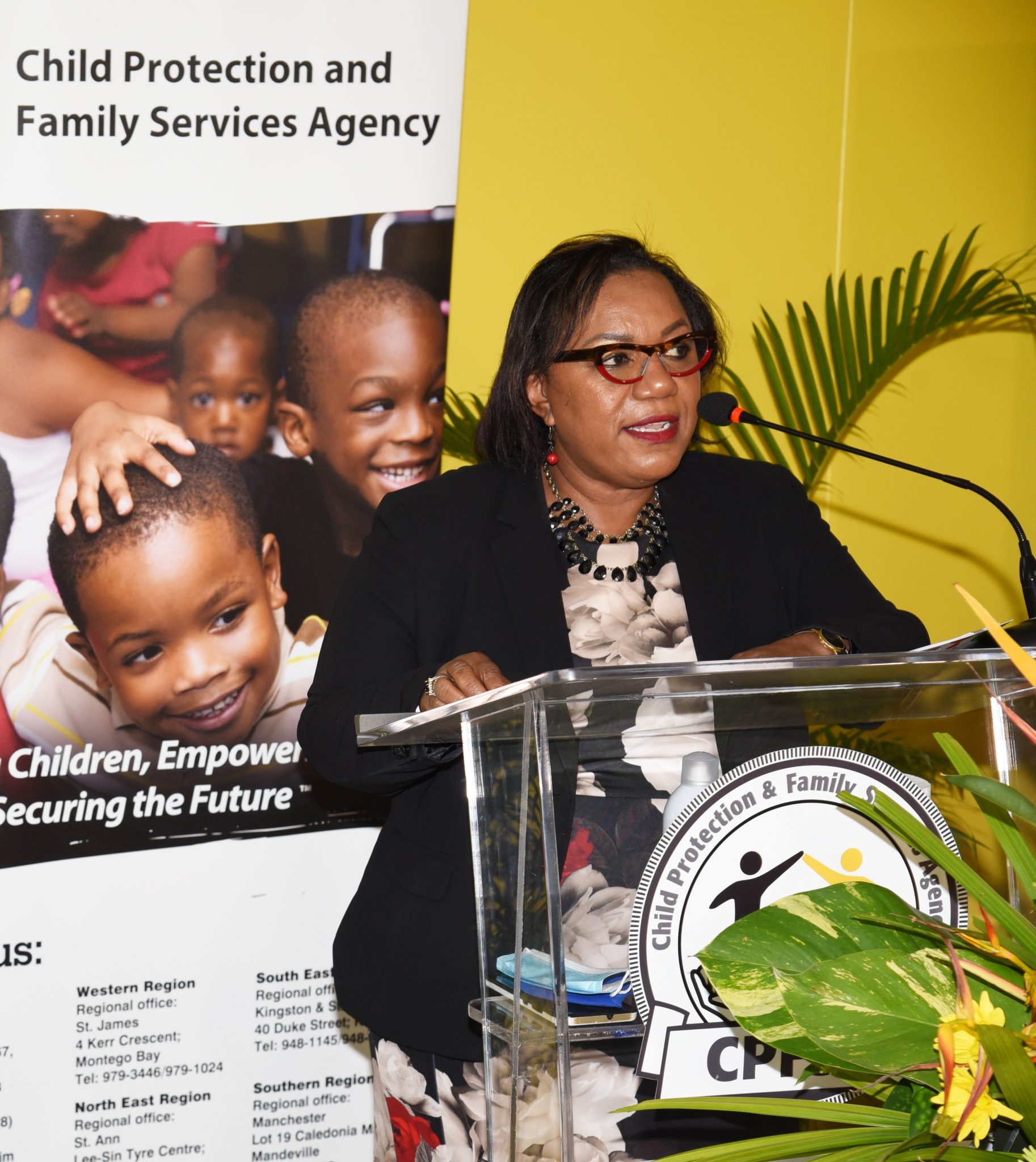CPFSA First Responders – Safeguarding The Welfare Of Children And Families
By: , August 31, 2021The Full Story
Their response is described as immediate, calculated, and direct, and is carried out in an effective manner.
They are the trained investigators assigned to the Child Protection and Family Services Agency (CPFSA) First Responder Programme (FRP).
These individuals are among the first to arrive on location in response to situations where children are victims of abuse or any other traumatic experience.
Their intervention is consistent with the Child Care and Protection Act, 2004 and the mandate of the CPFSA, which is to protect Jamaica’s children proactively and responsively.
This is done through sensitive investigations and appropriate action, love, advocacy, education, rehabilitation, and family support, because they are committed to safeguarding the welfare of Jamaica’s children and their families
Chief Executive Officer (CEO) of the CPFSA, Rosalee Gage Grey, tells JIS News that the FRP was conceptualised in 2014 as an early intervention mechanism.
She says the CPFSA, which comprises four regions – Southeast, Northeast, Southern, and Western – has a team of social workers who are trained to respond effectively to various situations as part of their core functions.
The CEO notes that with frequent instances of violent and emergency situations involving children occurring, the Agency saw the need to explore additional ways to better serve its clients.
According to Mrs. Gage Grey, the FRP is a rapid intervention programme that caters to the psychosocial needs of children who are either directly impacted or witnesses to major events such as accidents, fires, or shootings.
Acting Team Leader for the Western and Northeast Regions, Oral Hylton, tells JIS News that first responders are heavily relied on by the CPFSA.
He explains that the extent of the response depends on the nature of the situation. An assessment is initially done to determine the best option.
There are instances when a coordinated multi-agency approach is utilised. This may include entities such as the Jamaica Constabulary force (JCF), Victim Services Unit, and Food For the Poor.
Mr. Hylton points out that there are occasions when interventions may escalate to the courts. In that regard, a unit within the Agency is tasked with providing follow-up care when a case warrants additional intervention.
“There are times when a matter may require more in-depth and thorough investigation and could escalate to the police, and persons are brought before the courts,” he says.
Mr. Hylton, who describes the FRP as “important and effective”, noted that “when you hear of the tragic circumstances that some of our children find themselves in, such as [the untimely loss of a parent], you can imagine the level of trauma on the child/children”.
“So, we have to be involved, not only for the children but also the adults who are affected,” he adds.
The first responders are exposed to training in social work, case assessment, report writing and investigative capabilities.
There is also special emphasis on their ability to identify when a child should be placed in a safe environment.
The CPFSA receives information of incidents on which to activate its first responders through telephone calls, media bulletins, schools, the police, or walk-in reports.
Investigator assigned to CPFSA’s Southeast Region and a first responder, Ericka Gilbert-Hope, tells JIS News that there are times when an incident occurs, and instead of going to the location, they may have to go to the hospital to initiate the intervention.
She discloses that the CPFSA may receive anonymous calls, or notification from passersby, especially for children who are on the streets; for social cases, calls are usually from family members.
The Agency also gets alerts from the police, the Victim Support Unit, the Child Guidance Clinic, and schools’ guidance counsellors.
Ms. Gilbert-Hope points out that with street children, the CPFSA works with the police, first to ascertain their family background, return them home and, thereafter, continue the intervention.
This, she indicates, includes training for the parents and counselling for the children, adding that this will continue until a change in behaviour is evident.
“Once we are assigned to the case, we intervene and make [the requisite] referrals, depending on the case,” she further explains.
Ms. Gilbert-Hope encourages parents, guardians, caregivers, and members of the public to call the CPFSA if they witness or are aware of a child being a victim of violence. The numbers to call are 1-888-Pro-Tect, 876-948-6218, 876-948-1145
During the first quarter of the 2021/22 financial year, a total of 28 incidents impacting 47 children islandwide, occurred that were dealt with by first responders in collaboration with several stakeholders.
The CPFSA, which falls under the purview of the Ministry of Education, Youth, and Information, works collaboratively with the Office of the Children’s Advocate (OCA), Jamaica Constabulary Force (JCF), and other government agencies.
It was formed out of a merger of the Child Development Agency and the Office of the Children’s Registry.
The Agency is charged with providing support for children in need of care and protection, including those who have been abused, abandoned, neglected or are vulnerable due to disability.




